Ukraine war: Children in Mariupol 'drank rainwater from puddles'
Hearing how her best friend's children were drinking rainwater from puddles to survive the war in Ukraine is why Nataliia Roberts wants her in the UK.
Yuliia and her three daughters used to run out of their basement shelter in the besieged city of Mariupol after it'd rained as they were so thirsty.
It wasn't just the basics of water and food, there was no toilet, shower or electricity in their refuge from bombs.
Nataliia now wants her childhood friend with her in the sanctuary of Wales.
"We had a small bowl [of soup] for three kids once per day," explained Yuliia. "And one glass of water for three kids to clean themselves."
After her home was destroyed by Russian bombs, Yuliia and her daughters - aged 11, six and three - had to find sanctuary in a communal basement which offered some shelter but she barely had any food to feed the children.
"The kids were asking for food so much, that's why she tried to feed them at bed time, so they felt full before bed," said worried friend Nataliia, watching on from her home in north Wales.
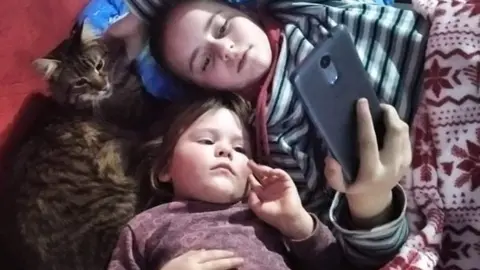 Yuliia
Yuliia"When it started to rain first of all they were able to drink from the puddle and that water was so, so, tasty. Then they found some pans to fill with water."
Yuliia eventually had to leave her children hiding as she went to look for fresh water.
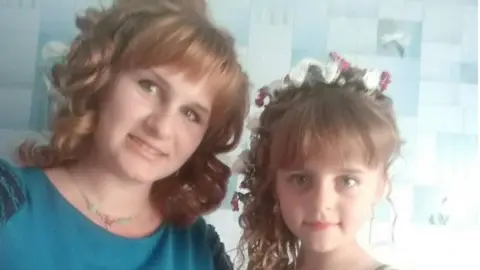 Yuliia
Yuliia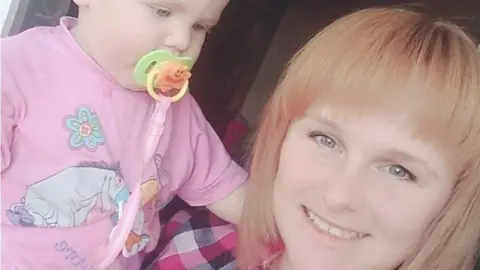 Yuliia
Yuliia"There was a well three kilometres [two miles] away. I had to run there under gunfire, under bombs," Yuliia recalls in a video diary for the BBC Wales Investigates programme.
And when her middle daughter became unwell, there were no medicines.
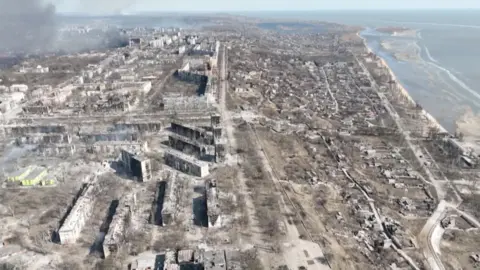
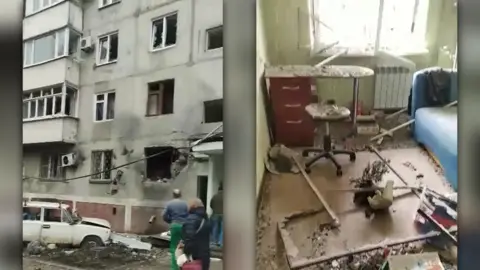 Yuliia
Yuliia"I had money but I couldn't buy anything because there was nothing anywhere, everything was broken, everything was looted and destroyed," she said.
Yuliia and Nataliia, who moved from Ukraine to Wales to be with her husband Dewi five years ago, have been close friends since school and had always kept in touch - until war broke out in Ukraine in February.
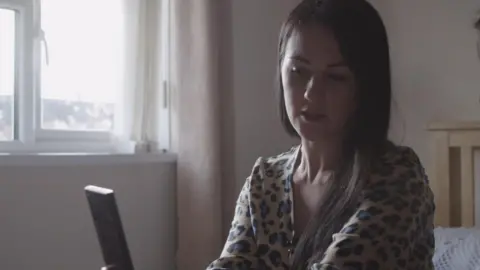
For days, sometimes weeks, it wasn't safe for Yuliia to text or call her friend 2,000 miles away.
Nataliia had to make do with Yuliia's intermittent video diary updates from her underground bunker with her girls while her husband fought the Russians on the front line.
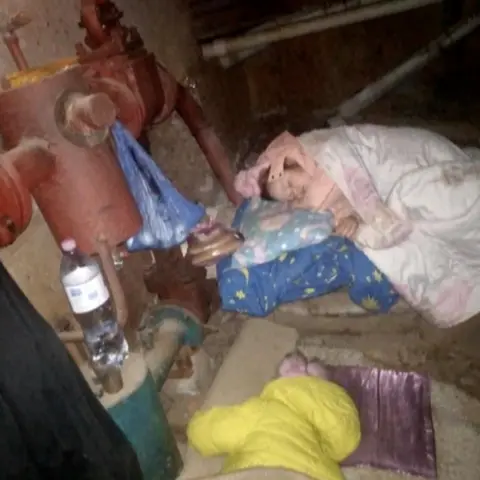 Yuliia
YuliiaThe 32-year-old accountant has managed to get her mum and stepdad out of eastern Ukraine when the situation began to escalate and Liudmyla and Sasha now live with Nataliia, husband Dewi, four-year-old Julia and Jacob, one, in the safety of Caernarfon.
Now Nataliia can't just look on as her friend struggles and is doing everything she can to help Yuliia and her young family become Ukrainian refugees in Wales.
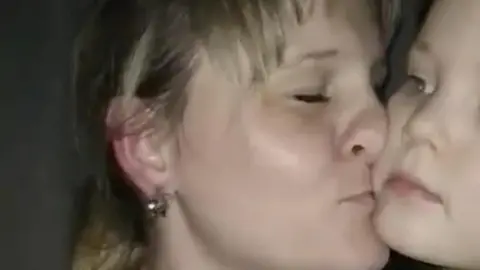 Yuliia
YuliiaYuliia and her girls are among 11 million Ukrainians forced to flee their homes before they eventually escaped Mariupol, under fire - weeks before the start of the United Nations-led evacuation from the strategically significant city.

The port city of Mariupol, which has been encircled since the start of March, is now mostly under the control of Russian forces - although several hundred Ukrainian troops remain in the Azovstal metal works factory in the south of the city.
Russian forces have blockaded the sprawling industrial complex and are continuing their aerial bombardment of it, but no attempt has been made yet to clear Ukrainian troops from a network of tunnels beneath the factory.
Russia has been accused of war crimes for its intense shelling of the city, with the local mayor saying at least 20,000 civilians have been killed. More than 100,000 people remain trapped in the city.
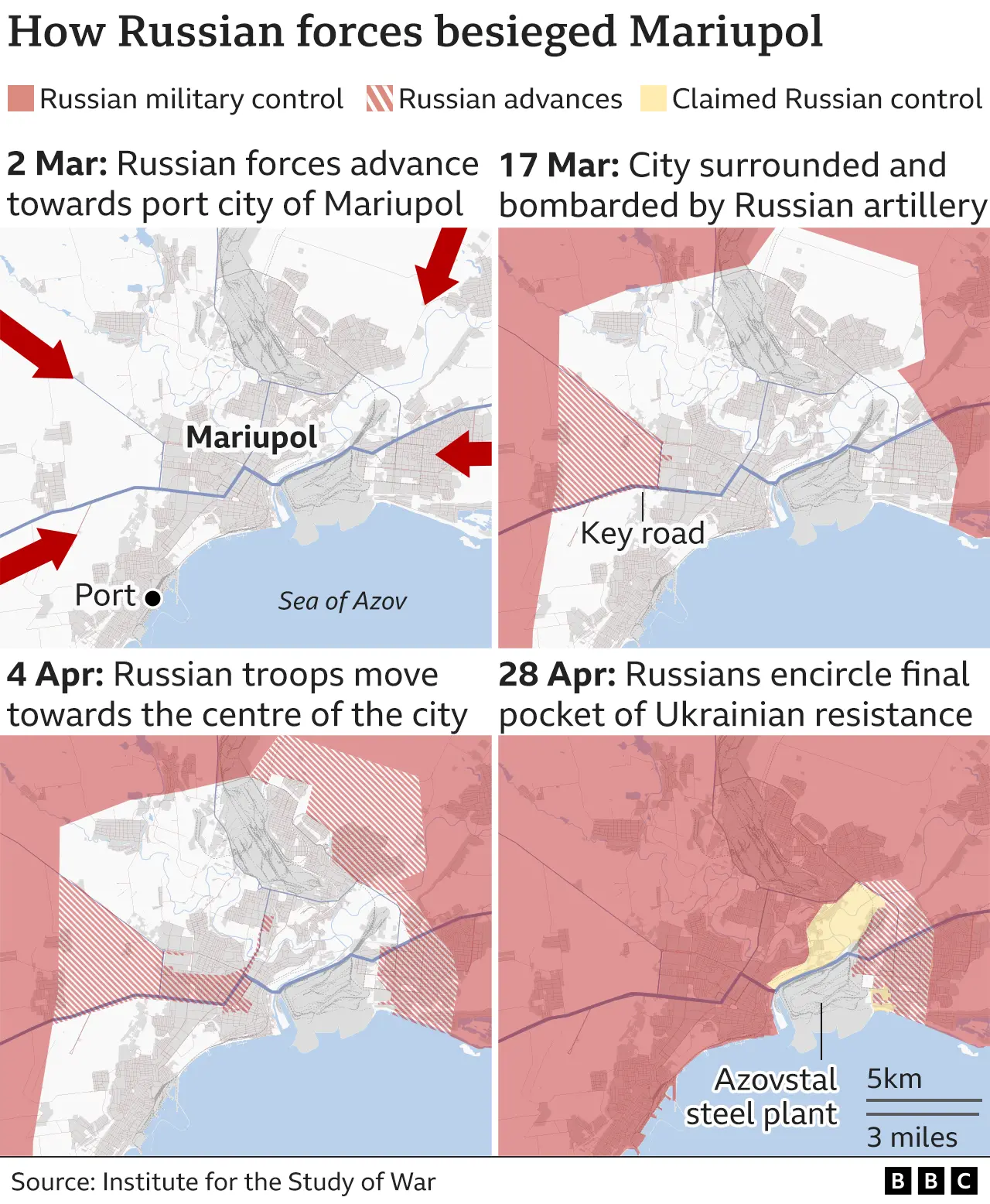

By train and then minibus, they headed for Poland, not knowing when they'd see her husband again, or whether they'd be able to join Nataliia and her family in Wales.
But it is the sights of war that are leaving their mark on Yulia.
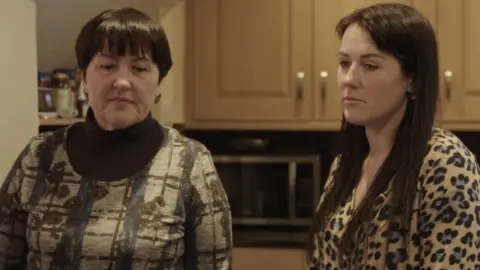
"She did see dead people in Mariupol, the ones who were killed by rockets who had no hands, no legs, whose bodies were destroyed," said Nataliia.
"I would love to have Yuliia here in Wales. I was dreaming that one day we will have a cup of tea in our dining room altogether and they can see our life here and have a more happy life. I just would love it."
About 27,000 Ukrainian refugees - out of the 86,000 approved visas - are in the UK and Wales has said it wants to be a "nation of sanctuary" for those fleeing the horrors of war in their home-land.
About 10,000 Welsh households had offered homes to Ukrainian refugees but by the end of last month, the Home Office had issued 2,300 visas for those wanting to come to Wales.

The Welsh government has sponsored nearly 700 visa applications so far, but couldn't tell BBC Wales Investigates how many refugees had arrived in Wales, insisting it has asked the UK government for the data but been told it's unavailable.
The Home Office said it is working "as fast as it can" to provide the information for the devolved governments, adding more than 86,000 visas have been granted under various schemes and is simplifying forms and boosting staff numbers to speed up applications.
- Watch Families Fleeing War on BBC One Wales at 20:30 BST on Monday or catch-up on BBC iPlayer.
